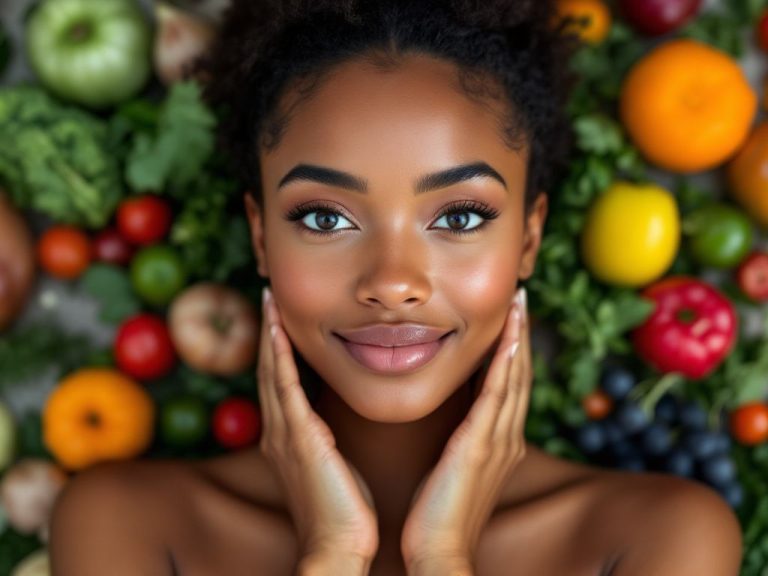Hey there! Let’s chat about something intriguing yet often overlooked—alcohol impact on our skin. Picture this: you’re meeting up with friends for happy hour or indulging in a quiet evening at home with your favorite drink. Feels great, right? But then, you wake up the next morning, catch glimpses of yourself in the mirror and—uh oh—your skin is not as vibrant as you’d like it to be. Ever been there? Yeah, me too. That, my friend, is what we’re diving into today.
Table of Contents
ToggleThe Sneaky Reality of Alcohol and Skin Health
So, what’s really going on when we sip our beloved cocktails or pints? Alcohol impact on skin is a real thing, and it’s a relationship more complicated than the plot of a daytime soap opera. Believe it or not, drinking effects can’t just be shrugged off as a “night out” hazard. It’s chemistry, hydration, and how your body deals with foreign substances. But, let’s break this down without getting all sciencey overkill.
When we consume alcohol, it’s all about how it affects our largest organ—yep, our skin. Several facets come into play; let’s explore them.
Dehydration: The Culprit Behind the Dry Spell
First things first—dehydration. Alcohol is a diuretic. Essentially, it makes you want to visit the restroom more often, purging fluids and crucial electrolytes. You lose water from your body and, guess what? Your skin takes a hit. That plump, hydrated look dissipates, leaving behind tired, lackluster skin. Not fun, but certainly a stark reality.
Is there a drink that hits harder on dehydration? Take a wild guess—hardcore spirits. While all alcoholic beverages can dehydrate you to some extent, those straight-up spirits without mixers are the worst offenders due to their high alcohol content. A cocktail or a diluted drink, though still having its own repercussions, isn’t as aggressive on your hydration levels.
Quick Tip: Balance it Out
Balance is key. If you want a night out without regret in the morning, for every glass of your chosen elixir, match it with a glass of water. Simple, concrete, and trust me, your skin will silently thank you.

Inflammation: The Understated Blow to Skin Clarity
Inflammation might sound like an internal thing, but it visibly rears its ugly head on your skin. Alcohol raises inflammation in the body, which can lead to issues like redness, puffiness, and even trigger skin conditions like rosacea. And, ah, we can’t forget that delightful hallmark of sensitive skin types’ frequent acquaintance—breakouts.
Toxin Accumulation: Detox Dilemma
Your liver works tirelessly to detoxify your body. However, when you drink alcohol, the liver is busy processing these substances and less focused on eliminating other toxins. These often manifest in the skin through various issues like dullness and faster aging. Sounds counterproductive after those night creams and anti-aging serums, right?
Keep It Real: Know What You Consume
Not all drinks impact in the same manner. Red wine, for example, although touted for its antioxidant content, still isn’t a free pass. Moderation remains the word in play. Trust me, being aware of the quantity and choice of alcohol makes a visible difference.
The Age-Old Topic of Premature Aging
Let’s be real: we all want to hold on to that youthful glow. Alas, the regular ritual of knocking back a few drinks could be accelerating the aging process. Alcohol impacts collagen and elastin—the structural support of youthful skin—leading to sagging or fine lines creeping up earlier than expected.
Don’t blink when I say excessive alcohol intake leads to faster wrinkles and slack skin tone. Proactively cutting down a few drinks a week or avoiding binge-drinking can keep your skin spared from adding ten years before you’re even halfway there.
What’s Happening Beneath the Surface
Here’s a go-to list to remember:
- Glycation: This process, set in motion by sugar in alcoholic beverages, weakens skin proteins.
- Oxidative Stress: Free radicals from alcohol oxidative reactions accelerate aging signs.
- Poor Sleep Quality: Alcohol disturbs REM sleep, compromising rejuvenation and, thus, your skin vitality.
Feeling Sleepy? Watch Out!

The equation seems simple: bad sleep equals sallow skin, dark circles, and an altogether tired aura. Next time, think twice if trying to shake off evening blues with alcohol to fall asleep—it’s a false friend, my friend.
Different Strokes for Different Folks: Alcohol Effects by Type
We’ve globally acknowledged alcohol impacts, but let’s get more specific. Here’s how different types of drinks can uniquely put a damper on your fresh face:
Beer
Beer might be low on alcohol content compared to spirits, yet, it’s packed with calories and affects our hydration balance due to its volume. The hops can lead to bloating, creating a puffy relaxed vibe rather than finesse.
Wine
Wine, especially red, is often praised for its antioxidants. But, consumed in excess, these very sugars can incite glycation damage, curtail your collagen love, and stir redness.
Spirits
Higher in alcohol concentration, spirits are the leading actors for dehydration. Mixed drinks, albeit watering down the alcohol, usually come with sugar-heavy mixers that invite breakouts.
Cocktails

Often with sugary additions and various mixers, cocktails are usually delish but high in both calories and sugars. The effects are quicker aging signs and unwanted facial puffiness.
Skin-Saving Hacks in Your Drink Adventures
Okay, so now what? You don’t have to become a teetotaler (unless that’s your jam). Here are a few pointers that help maintain your drink love while respecting your skin goals.
- Choose Wisely: Consider beverages with less sugar content. Think straight vodkas with soda and lime, or quality wines in moderation.
- Stay Hydrated: We’ve said it before, keep alternating between alcohol and your trusty water sidekick.
- Earlier Cut-off Time: If possible, consume drinks earlier in the evening to let your body restore before sleep.
- Food Matters: Eat a balanced meal before drinking. A good dose of healthy fats can slow absorption, minimizing toxins touching off skin woes.
- 5. **Beauty Sleep: Wind down well before heading to sleep. Cut out alcohol rigorously close to bedtime to support healthier and productive slumber.
- 6. **Skincare Backup Plan: Consider incorporating products with antioxidants—such as Vitamin C—and hydration boosters like hyaluronic for post-evening skin TLC.
Making Peace with Your Reflection
So many factors mold how alcohol impacts your skin, but by tuning in to its influence, you’ve got a roadmap to how to keep the celebrate-sans-regret affair alive. Remember, this isn’t about harbingers of doom for enjoying an evening; it’s applying what we understand towards Saner sips lead to serene visages mornings after.
Next time you raise a glass, remember this little chat; cherish both life’s social sips, and your skin smiling back at you the next day. Balance truly is a beautiful beast that deserves your trust—cheers to that!
Frequently Asked Questions
What are the short-term health effects of alcohol consumption?
Short-term health effects of alcohol consumption include headaches, dizziness, nausea and vomiting, loss of coordination and balance, accidental injury, alcohol poisoning, and fatigue. These effects can also lead to hangovers, which involve symptoms like headache, thirst, dizziness, nausea, and tiredness[3][5].
How does alcohol impact the liver and other organs in the long term?
Long-term alcohol consumption can severely impact the liver, leading to conditions such as steatosis (fatty liver), alcoholic hepatitis, fibrosis, and cirrhosis. Additionally, it can damage the heart, causing cardiomyopathy, arrhythmias, and increasing the risk of stroke and high blood pressure. Alcohol can also lead to pancreatitis, weaken the immune system, and increase the risk of various cancers, including liver, breast, and colorectal cancer[1][3][5].
Can alcohol consumption affect mental health and cognitive functions?
Yes, alcohol consumption can significantly affect mental health and cognitive functions. It can increase the risk of mental illnesses such as depression, anxiety, and even suicide. Long-term drinking can also impair memory, increase the risk of dementia, and affect judgment and decision-making abilities[1][3][5].
What are the risks of alcohol consumption during pregnancy and breastfeeding?
Alcohol consumption during pregnancy can cause fetal alcohol spectrum disorder (FASD) and other harm to the unborn baby. It is recommended that pregnant women avoid alcohol entirely. For breastfeeding women, even small amounts of alcohol can be present in breast milk, so it is advised to avoid drinking alcohol to ensure the baby’s safety[3].
References- Alcohol’s Effects on the Body. National Institute on Alcohol Abuse and Alcoholism.
- How alcohol affects your health. Healthdirect.
- Risks: alcohol misuse. NHS.








